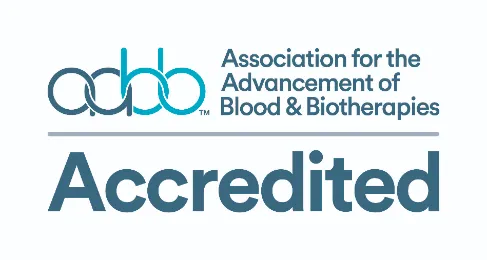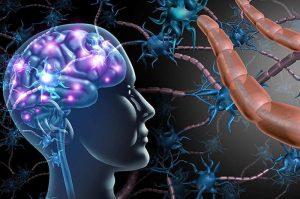ASH News Daily , December, 2024
- Donnall Thomas, MD, stands as a luminary in the realms of bone marrow transplantation (BMT) and immunotherapy. Renowned for pioneering BMT and establishing the bedrock of this life-saving procedure, Dr. Thomas was honored with the Nobel Prize in Physiology or Medicine in 1990 for his groundbreaking contributions. His tireless work significantly advanced our comprehension of the immune system’s intricacies, refining the BMT process and enhancing management strategies for complications like graft-versus-host disease (GVHD). Dr. Thomas’ research left an indelible mark on hematology globally, facilitating over 1.5 million BMTs worldwide and saving countless lives.
Celebrating the legacy of Dr. Thomas’ groundbreaking contributions in hematology, the E. Donnall Thomas Lecture and Prize was awarded yesterday to Katy Rezvani, MD, PhD, at this year’s ASH annual meeting. Dr. Rezvani heads a dynamic research team at the MD Anderson Cancer Center in Houston, TX, which is dedicated to exploring innovative strategies that harness the immune system’s potential in combatting cancer. Her primary focus lies in optimizing cell-based therapies, specifically by leveraging engineered natural killer (NK) cells armed with chimeric antigen receptors (CAR) to target and eradicate cancerous cells. Dr. Rezvani has pioneered a revolutionary approach in which NK cells derived from umbilical cord blood are modified, heralding a paradigm shift in adoptive cellular therapies, which hold immense potential for combatting various cancers.
“Dr. Rezvani is an exceptional mentor, embodying qualities that make her the best one could ask for,” said Hind Rafei, MD, MS, an assistant professor at the MD Anderson Cancer Center. “She is not only bright and visionary but also inspiring, kind, generous, and incredibly supportive. Driven by a commitment to excellence, she consistently challenges us to become the best versions of ourselves. Despite her tireless work in her career, Dr. Rezvani exudes a contagious ‘joie de vivre’ that uplifts all who know her. Her delightful and energetic presence fosters a wonderful rapport with the team. In simple terms, Dr. Rezvani’s ‘door is always open’ for anyone in need of her support.”
In recent years, we have witnessed significant strides in crafting more precise and more potent cancer treatments. NK cells have emerged as a focal point in the realm of adoptive cellular therapies, boasting unique attributes that render them advantageous for such treatments. Researchers are exploring ways to amplify NK cell activity, leveraging the body’s inherent defense mechanisms to bolster their efficacy in targeting and eradicating cancerous cells.
Advancements in comprehending NK cell biology, including their molecular and cellular mechanisms (e.g., cancer cell recognition, interaction with specific ligands, and their synergistic role with other immune cells to orchestrate a robust immune response) have spurred investigators to investigate how their potential can be harnessed for stem cell transplantation and adoptive cellular therapies. By integrating insights gained from single-cell proteo-genomics, genetic engineering, synthetic biology, and cell manufacturing, the landscape of cancer treatment has undergone a paradigmatic transformation.
Dr. Rezvani’s lecture illuminated the profound impact of Dr. Thomas’ pioneering work in immunotherapy and the refinement of BMT. Commencing with the historical trajectory of BMT and the evolution of the graft-versus-leukemia effect, her lecture also underscored the pivotal role of NK cells in immunotherapy. Dr. Rezvani delved into the intricate biology of NK cells, elucidating their place within the innate immune system and their vast potential in non-transplant cancer treatment settings.
Emphasizing the anticipated potential of allogeneic NK cell donors, including umbilical cord-derived NK cells, the lecture explored the challenges inherent to this context. Dr. Rezvani expounded on the therapeutic horizon of NK cells, contemplating their engineered expression of specific T-cell receptors to target a broader spectrum of antigens, which can extend their application beyond hematologic malignancies to solid tumors.
Recognizing the propensity for cancer cells to evade treatment strategies, Dr. Rezvani tackled mechanisms of cancer cell resistance to engineered NK cell therapy, including trogocytosis. She detailed the innovative dual CAR systems developed to surmount this resistance. The lecture also explored innovative gene editing techniques as potential solutions to the hurdle of immunosuppressive tumor microenvironment in solid tumors.
Additionally, Dr. Rezvani touched upon the role of NK cells in tandem with bispecific antibodies. She concluded with a summary of significant advancements in NK cell therapy development, attributing its foundation to trailblazers such as Dr. Thomas, which have been furthered by collaborative efforts in the field.
Highlighting the burgeoning role of NK cells in cancer treatment, the lecture underscored the optimism among researchers engaged in the ongoing fight against cancer. As the quest for more targeted and minimally invasive cancer therapies persists, research in NK cell-based therapy promises transformative changes in the cancer treatment landscape. The ongoing strides in adoptive cellular therapies and the unfolding understanding of the immune system’s role in combating cancer bodes well for the future, steering us toward more accessible and broadly applicable therapies targeting diverse cancer types.
Source: ASH News Daily







